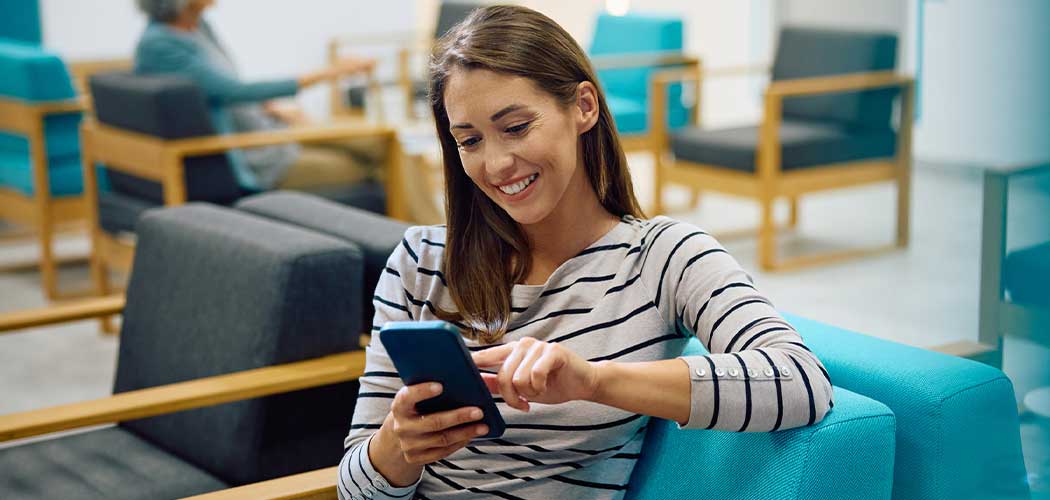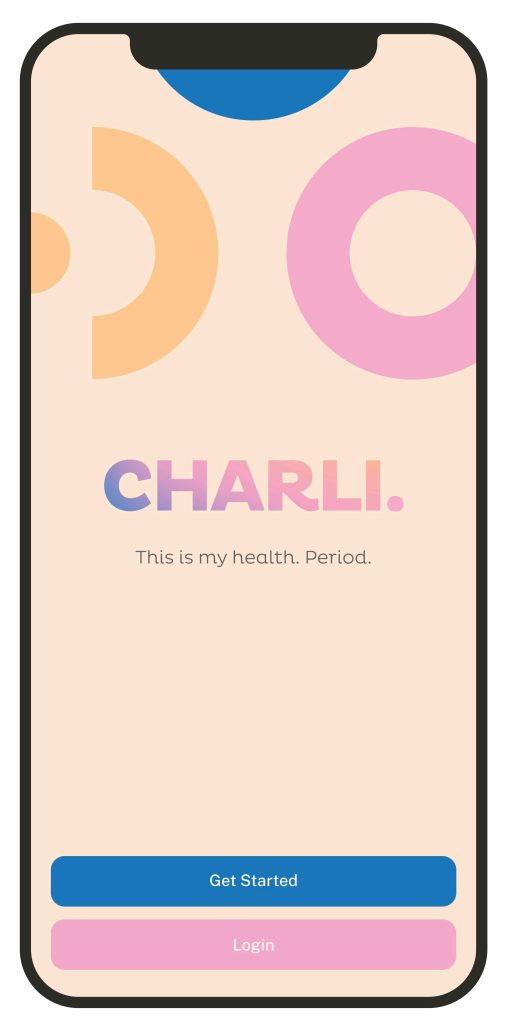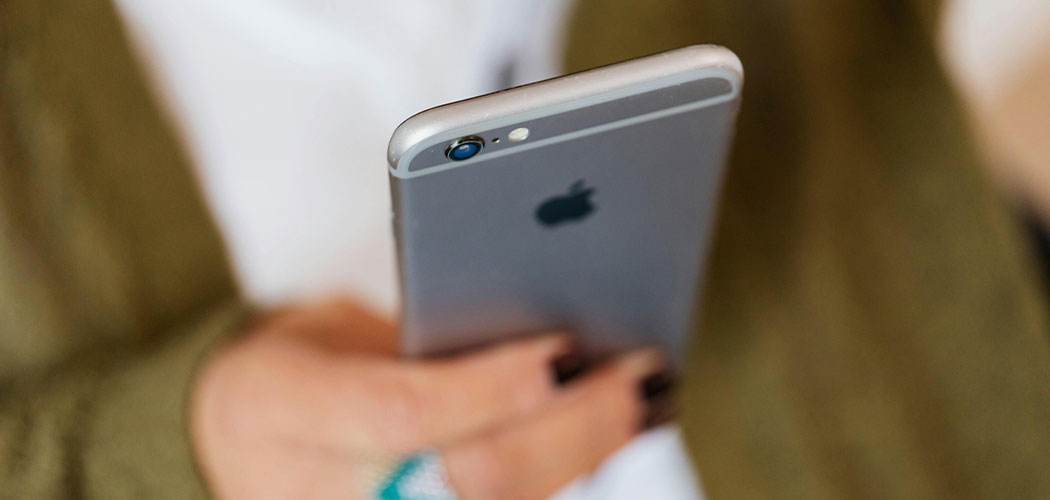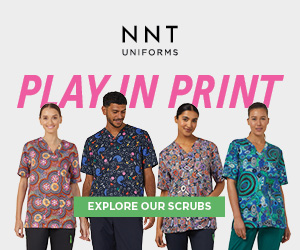Clinical nurse and midwife Samantha Costa is co-creator of CHARLI, a recently launched women’s health app that uses artificial intelligence (AI) to help empower women in their health and wellness. She talks with the ANMJ.
CHARLI Health uses evidence-based, AI technology for women to track and manage their menstrual cycles, fertility, sexual health, pregnancy, peri/menopause and pain.
The app identifies normal patterns via self-logged data, promotes lifestyle changes and links users with healthcare professionals including GPs, specialists and allied health practitioners.
Launched on 27 March for Endo Month by Endometriosis Australia, CHARLI notched up almost 3,000 users within the first two weeks. The app has been lauded as a game-changer in evidence-based access to healthcare at your fingertips.
Co-creator of the technology behind the app and currently in the final stages of completing her nurse practitioner Master’s, Ms Costa started investigating women’s health apps about five years ago.

“I work predominantly in women’s health and a lot of the time we’re asking patients do they know when they ovulate, do they know about their cycle and most people were answering ‘hang on, let me just check my app’.
“I said to the doctor that I work alongside, ‘how accurate are these apps and why are people using them?’ Because to me, if they were overly accurate, we wouldn’t be in a job and we’re very busy. He turned to me and said, ‘that would make a great research project’.”
Ms Costa researched current apps on the market at the time, including what they had to offer and their accuracy. She found that nothing was Australian centric.
“They’re all based in the UK or the US, and the information they provide doesn’t necessarily translate to the Australian context. Quite often we have patients come through and say, ‘I want to do this, or I want to have this test’. And we say we can do similar, but it’s called this.”

How it evolved
In the middle of her research, COVID happened.
“We were thrown into the telehealth world, which is not anything that we had really done in this space before. We’d had the occasional patient that would have a telehealth appointment, but not a huge amount.
“We did research looking at the effectiveness of telehealth and then there was the evolution of ChatGPT. We did research looking at whether something like ChatGPT could respond to patient questions as well as or as safely as a nurse could, which it showed that that it could.”
Despite comprehensive research, there was still nothing on the market that met the needs of their patients, Ms Costa said.
“I thought wouldn’t it be great if we could kind of bring all of what we’ve done together to create an app that was best fit for Australian women.
“We started to look at what that might look like. But we also wanted it to be evidence based. Charli is a hybrid model. It’s got the app, it has a virtual clinic (telehealth), and it will also have a native research platform in built into it.”
Diagnostic flags
CHARLI algorithms have been embedded into the AI to provide diagnostic prompts for conditions such as endometriosis, PCOS, primary ovarian insufficiency and perimenopause.
“So as people use the app and log symptoms and their cycles and everything that’s happening, if they meet certain criteria that we use in clinical practice every day, the app will help pull that up and go:
‘You’re saying that you have 8 out of 10 pain for five days of your period and you’re missing work. This is a soft marker for something like endometriosis, do you want to talk to someone?’ It then has the ability to link in with our lovely GP and myself once I’ve completed my nurse practitioner credentialing,” said Ms Costa.
On the online platform, women will shortly be also able to download a PDF copy of everything they popped into the app, so they can take it to their own GP, she said.
The user is in control of the information and what is shared. “So, if they have a consult online, they can opt in to share certain elements of the information that they’ve provided and not the other elements.
“The same with research. If they want to be involved in an endometriosis study; they can opt to share their cycle details but not their medical history. So, it is the consumer or the user that has the power over what is shared,” said Ms Costa.
Access
The CHARLI app is hoped to help address inequalities in healthcare access and diagnostic support and reduce the delay in onset of symptoms to diagnosis.
Having previously been a practising midwife in northern Queensland for several years, Ms Costa is well aware of inequitable healthcare access for regional and remote women.
“That’s one of the things that contributed to this research, is my experience in those communities and understanding how long it often takes for people to get the care they need.
“Australia obviously has quite a unique landscape and the hope is that we open up that that level of care to all women, irrespective of where they sit on the map.
“We see women that come down here for care but then have follow up care closer to home and it just doesn’t happen. The services just aren’t there, and it leaves them unsupported.
The hope is that CHARLI can help women feel somewhat supported in their health, even if there’s not an issue, Ms Costa said.
“In healthcare, we treat disease, but this is also about wellness and keeping people well and in tune and educated about normal processes in their body.”
A fertility module will be available in September to support for people that are either wanting to conceive or are undergoing some form of fertility treatment. Pregnancy and lifestyle modules will follow.
Young women
The app is currently recommended for over 18-year-olds with modules aimed for preteen/early teens in the pipeline, so that younger girls can track changes to their body even before they begin menstruation.
“So that when their period comes, particularly if mum hasn’t had a conversation or mum’s not around or they’re in a split home, that they’ve got some insight into what’s happening in their body.
“I think not having those conversations or for those whose mum or grandma has had painful periods it’s deemed normal. Women come through and don’t think anything of a really painful period that they have had to take a couple of days off work and school for, because mum did it, grandma did it, it’s just what happens in the family. But we know that’s not normal.”
Constructive feedback
Ms Costa encourages nurses and midwives, to use the app for themselves as both a consumer and a health professional.
“It’s really important that we get not only patient or user feedback, but also practitioners as well, as to what they think might be useful on the app from a either an information or an education perspective.
“What they might do in their clinical practise that might be missing on CHARLI. Our user experience might be different for those in rural and remote areas for example. I’m a female, but what I want might be different to what you want and what the next person wants.”
A feedback form is available on the website.
Destigmatising women’s health
“Women’s health still has that stigma that people don’t want to tell their workplaces that they need to go to the gynaecologist or need to go to their doctor,” says Ms Costa.
“To have something where you can have a telehealth in your office with your door closed with all of your information already there and shared with your practitioner if you choose to, then hopefully that opens up access to women’s health much easier than what it has been in the past.
CHARLI is available for free download via the Apple Store and Google Play.








